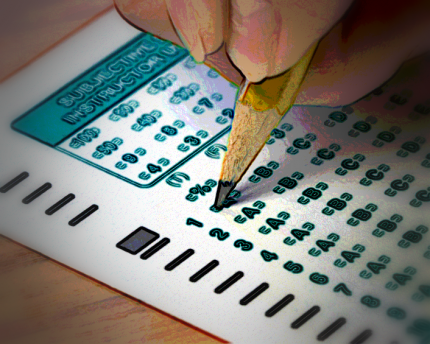Test-taking made perfect (or tolerable)

More than 8 million students took either of the two tests, or a related test, in 2015-16, according to statistics from the College Board, which administers the SAT, and ACT.org, a nonprofit.
While not every college requires these tests, they are still part of the admissions process in many universities. With that in mind, here are test-taking strategies from education researchers:
The routine: You know these tests are coming, so start preparing early. Make it a part of your routine. Preparation is a key to overcoming test anxiety, according to the Anxiety and Depression Association of America.
Practice makes perfect: Take practice tests to adjust to the standardized test format. The website Number2.com has free online test preparation courses that help you prepare. Another online resource is ePrep.com, the product of Princeton University graduates. The courses – fee required – teach test-taking strategies. Several websites have SAT vocabulary lists.
Stressed? This can be a big problem. Consider the well-worn stereotype that women are not good at math. We take this for granted, but stereotype-induced math anxiety undermines working memory – the short-term memory system that is key to handling problems at hand, according to a 2007 study by University of Chicago researchers. Remind yourself that you are prepared, no question about it.
But it’s not enough to say, “don’t worry.” Here’s a suggestion: Write about why the test troubles you. Writing about worries before an exam helps students fight test anxiety and can improve performance, according to a 2011 University of Chicago study published in the journal Science.
Start your engines: If you are nervous, try relaxation techniques, such as taking deep breaths. Focus on the exam, not on other students in the room, recommends the Anxiety and Depression Association.
Let the odds be ever in your favor: Don’t panic when you come to a difficult question. Instead, eliminate the answers you know are wrong, suggests the website for the Princeton Review, which sells test-prep courses aimed at improving student performance. The logic: If there are four questions, you have a 1-in-4 chance of getting the answer right. But once you eliminate an answer you know can’t be right, your odds are 1 in 3.
Picking and choosing: The review also recommends that test-takers answer questions out of order. That way, you confidently answer questions you know, while not spending too much time on questions you don’t know. In this way, you immediately assess whether you understand and can answer a question. If it is too difficult, move on to something you can nail.
It’s not the end of the world: If you aced it, good work. If not, remember what we pointed out earlier: Some colleges no longer require these tests. Not only that, but the ability to take a standardized test under pressure is not the final word on student aptitude. So prepare and give the test your best shot, but if it doesn’t work out, move on.
Related:
Top schools that don't require the SAT or ACT
Follow StudyHall.Rocks on Twitter or like us on Facebook and tell us what you think.

